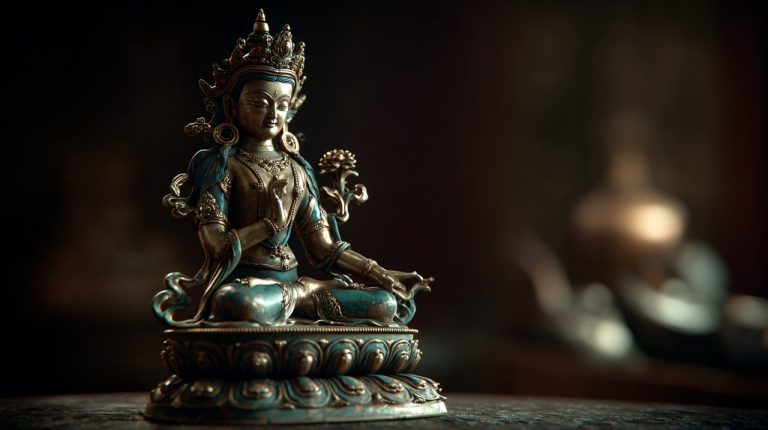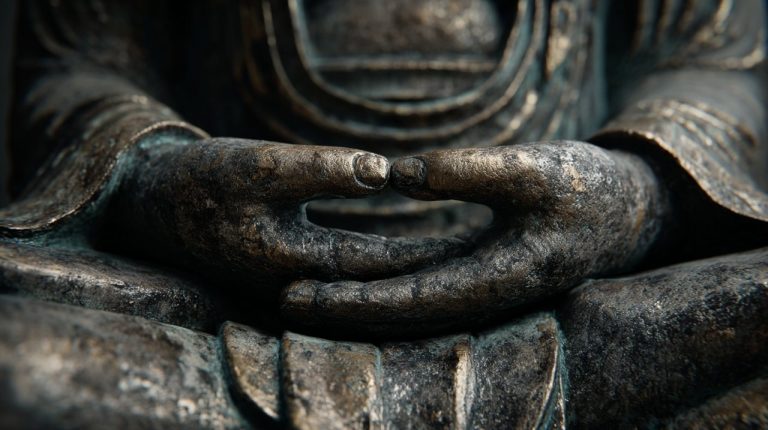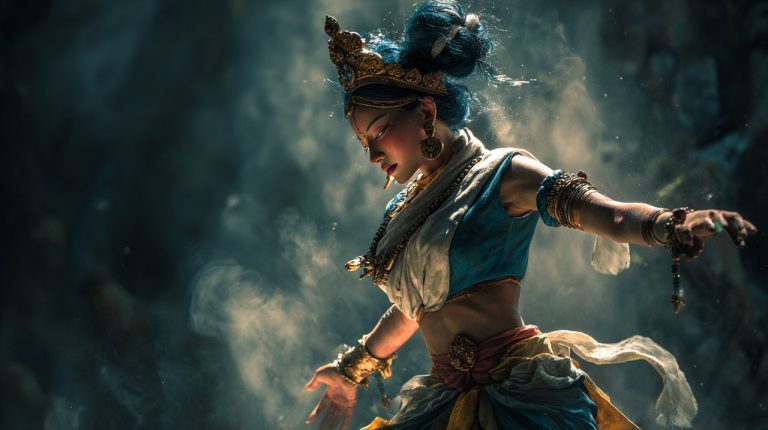The Enduring Spirit of Koi: Symbolism, Culture, and Life’s Journey
In the intricate dance of life, certain symbols emerge that encapsulate the very essence of human aspiration. Among these, few resonate with the quiet power of the koi fish. More than just a vibrant aquatic dweller, the koi, especially in its iconic image of leaping a waterfall, stands as a profound metaphor for life’s relentless currents and the transformative triumphs born from unyielding effort. This article will journey through the rich tapestry of Eastern thought, clarifying the layers of meaning embedded within the koi, from its ancient origins to its vibrant presence in contemporary culture and personal philosophy, revealing how this magnificent creature inspires us to navigate our own paths with courage and grace.
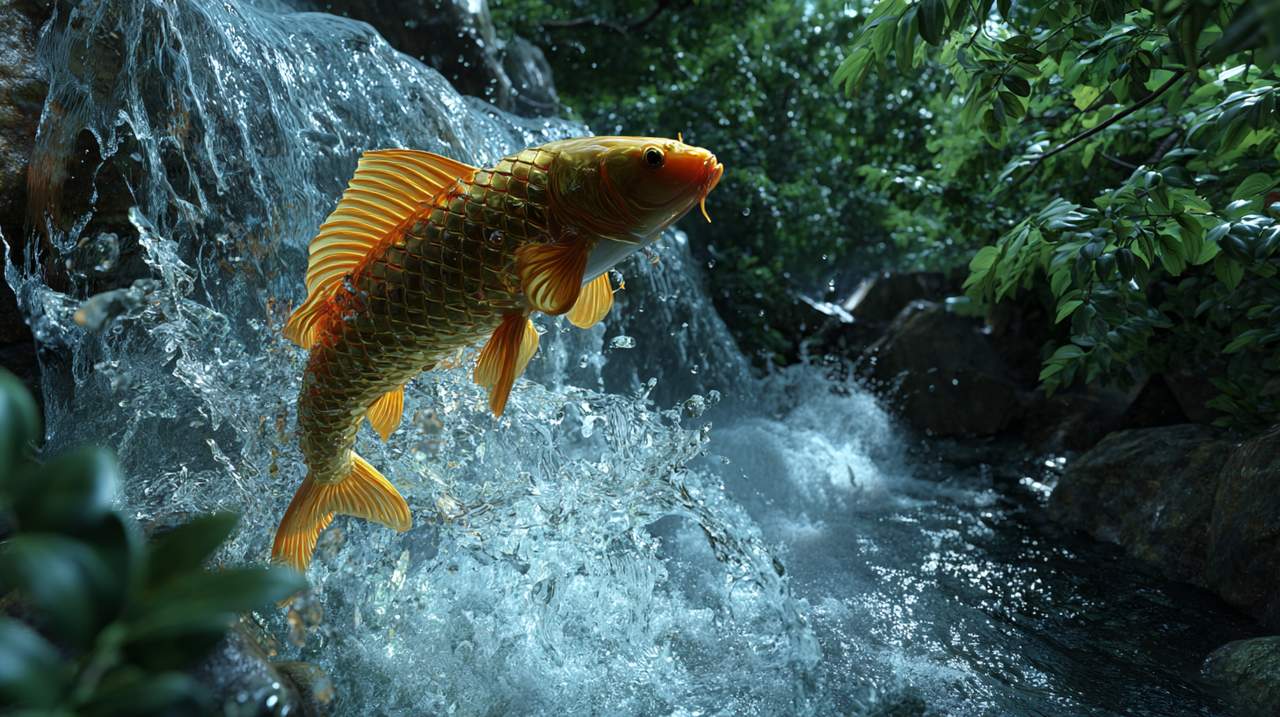
Eastern Origins and Mythical Roots of Koi
The remarkable journey of the koi began centuries ago, deeply woven into the cultural fabric of both China and Japan. Initially, these were common carp, Cyprinus carpio, primarily domesticated across East Asia as a food source. However, through generations of meticulous selective breeding, they were transformed into the dazzling ornamental varieties we admire today. This artistic cultivation, known as nishikigoi, reached its zenith in Japanese culture, elevating the humble carp from sustenance to a living, breathing work of art.
The most potent and foundational symbol associated with the koi stems from the ancient Chinese Zodiac legend of the "Carp Leaping Over the Dragon Gate" (鲤鱼跳龙门). This profound myth tells of a massive school of golden carp battling the formidable currents of the Yellow River. Many, overwhelmed by the challenge, retreated. Yet, a few, driven by extraordinary determination, persevered. They reached a formidable waterfall known as the Dragon Gate. With immense effort and courage, a select few managed to leap over these falls. In that transcendent moment, they were miraculously transformed into magnificent dragons. This foundational narrative offers an unparalleled message of resilience, spiritual ascent, and ultimate transformation, echoing themes of destiny and self-overcoming found across Eastern philosophies.
Decoding Koi’s Core Symbolism: Perseverance, Success, and Fortune
The legend of the Dragon Gate firmly establishes the bedrock for the koi fish’s symbolism across various Eastern cultures. Its meaning extends far beyond mere aquatic beauty. This vibrant presence serves as a constant reminder of life’s arduous journey and the profound rewards reaped through persistence. Let us now clarify the specific facets of this multifaceted symbolism.
Courage Against the Current: Perseverance and Struggle
The very act of swimming upstream against powerful currents inherently defines the koi’s primary symbolic meaning: perseverance and indomitable will. This spirit, encapsulated by the Chinese idiom 逆流而上 (nì líu ér shàng), meaning ‘to go against the current,’ resonates deeply with anyone confronting adversity. It signifies the profound strength required to push through obstacles and to endure hardship. This relentless pursuit of one’s goals, irrespective of challenges, is mirrored in the koi. The fish’s struggle against the current is, in essence, a vivid visual representation of the human spirit’s boundless capacity for resilience.
Dragon Transformation: Achievement and Prosperity
Beyond the immediate struggle, the legend culminates in a glorious transformation. This elevates the koi’s symbolism to encompass profound good luck and prosperity. The metamorphosis from a humble fish to a majestic dragon represents:
- Achievement and Success: This is depicted as the ultimate reward for unwavering perseverance.
- Wealth and Abundance: Dragons, as powerful mythical creatures, are traditionally associated with control over water and rain, thereby bringing prosperity.
- Spiritual Growth: The evolution from a humble fish to a majestic dragon symbolizes a profound elevation and enlightenment of the spirit.
Thus, a koi embodies not merely the arduous journey itself, but also the magnificent and transformative destination.
Koi Fish Symbolism in Japanese Culture: Strength and Resilience
While sharing common foundational roots with Chinese symbolism, the meaning of the koi fish in Japanese culture has developed its own distinctive nuances. In Japan, the koi is revered as a powerful emblem of:
- Strength and Courage: This association is particularly strong with the samurai warrior class, reflecting the koi’s ability to swim upstream and its stoic nature, even when captured.
- Good Fortune and Longevity: The koi’s notably long lifespan and robust constitution significantly contribute to this auspicious association.
- Family and Fertility: Different colors of koi are often used to represent various family members, and their prolific breeding is intrinsically linked to prosperity and the continuation of lineage.
The Japanese term ‘koi’ itself is a homophone for another word meaning ‘affection’ or ‘love’, further cementing its overwhelmingly positive cultural standing and deeper emotional resonance. This linguistic serendipity underscores its profound place in the national psyche.
Modern Interpretations of Koi: Tattoos and Feng Shui
The profound and timeless symbolism of the koi has seamlessly transcended ancient lore. It finds vibrant and dynamic expression in contemporary art, deeply personal statements, and various spiritual practices. Its inherent visual appeal, combined with rich layers of meaning, ensures its enduring popularity as a motif across diverse modern contexts.
Koi in Tattoo Art: Personal Beliefs
A koi fish tattoo in the modern world serves as a deeply personal declaration, a permanent narrative etched onto the skin. These tattoos remain among the most sought-after and meaningful designs. They are often chosen to reflect the wearer’s life philosophy or significant personal journeys, embodying a profound desire for self-expression and a tangible reminder of one’s core beliefs. Common interpretations include:
- Overcoming Adversity: A powerful reminder of past struggles and the inherent strength found in overcoming them.
- Personal Growth and Transformation: Symbolizing significant life changes, a commitment to self-improvement, or an ongoing evolution.
- Good Luck and Prosperity: A tangible wish for fortune and success in future endeavors.
- Courage and Resilience: A direct expression of inner strength and unwavering determination.
It is noteworthy that the direction of the koi within a tattoo also carries significant meaning. A koi swimming upstream often denotes a current struggle or an ongoing challenge. Conversely, a koi swimming downstream, or one that has already transformed into a dragon, can signify achieved goals, overcoming past challenges, or the realization of profound personal victories. This nuanced symbolism allows for a highly personalized narrative, much like choosing a red string bracelet symbolism to represent protection or destiny.
Koi in Feng Shui Layouts: Flow of Energy
In Feng Shui, the ancient Chinese practice dedicated to arranging spaces to optimize energy flow and harmony, koi fish are considered highly auspicious. Their presence, whether as living fish in a tranquil pond or as artistic representations, is widely believed to attract positive energy, wealth, and abundance. This belief reflects a cultural desire to harness auspicious symbols for personal and communal well-being. Key applications of koi symbolism within Feng Shui include:
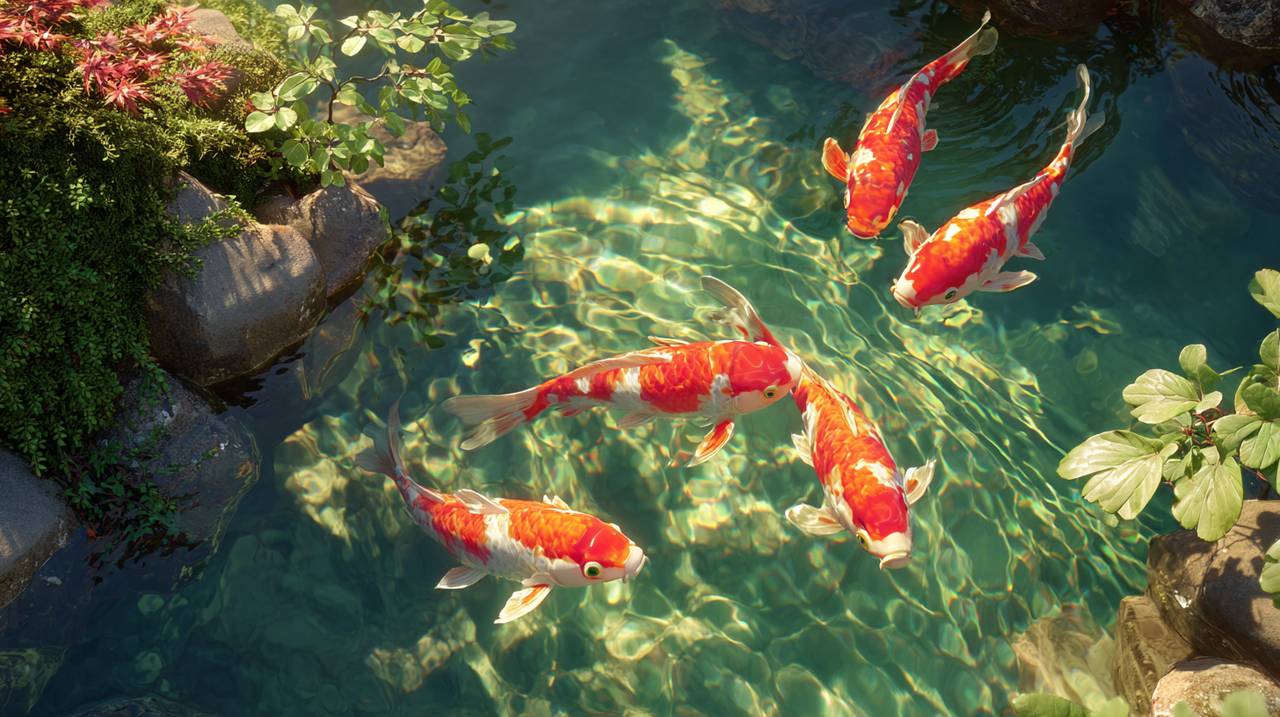
- Aquariums and Ponds: Live koi are thought to bring tangible wealth and harmony to both homes and businesses, acting as living conduits of prosperity.
- Art and Decor: Paintings, sculptures, or even carefully selected wallpaper featuring koi can be strategically placed to enhance prosperity and good fortune within a given space.
- Number Symbolism: A common and highly favored combination involves eight koi (typically seven red/gold and one black), symbolizing not only prosperity but also protection against negative energy, creating a balanced and potent energetic field.
Integrating koi elements into one’s environment is thus seen as a deliberate and potent way to invite the very qualities they embody directly into daily life. This fosters a continuous flow of positive influence, much like how a jade bracelet chinese meaning is believed to protect and bring good fortune to its wearer, or how a Pixiu symbol is revered for attracting wealth.
The Koi Spirit: Integrating Ancient Wisdom into Modern Life
The enduring allure of the koi fish ultimately resides in its remarkable capacity to encapsulate universal human experiences. It embodies the struggle, the unwavering perseverance, and the ultimate, transformative triumph. Far more than merely a beautiful creature, the koi is a living, breathing metaphor for a life lived with purpose and fulfillment. From the foundational tale of the carp leaping the Dragon Gate to its contemporary manifestations in powerful tattoos or as a potent lucky charm in Feng Shui, the koi consistently inspires. It urges us to embrace our own unique journeys with profound courage and resolute determination. Consider your own ‘Dragon Gate’ – that formidable challenge demanding your utmost. The koi spirit reminds us that every upstream battle, no matter how daunting, holds within it the profound potential for magnificent personal transformation. It encourages a proactive approach to life, fostering unyielding resilience in the face of adversity. This spirit instills an unwavering belief in one’s inherent capacity for growth and remarkable achievement. To truly embody the koi spirit is to recognize, as the ancients did, that life’s greatest rewards often lie just beyond the most challenging currents. It is to swim on, to transform, and ultimately, to ascend.
💡 Frequently Asked Questions
The foundational myth is the ancient Chinese legend of the "Carp Leaping Over the Dragon Gate." This story tells of carp battling the Yellow River's currents, with a few persevering to leap over the Dragon Gate waterfall and transform into magnificent dragons, symbolizing resilience, spiritual ascent, and transformation.
The koi fish primarily symbolizes perseverance, success, and good fortune. Its struggle against currents represents courage and resilience, while its mythical transformation into a dragon signifies achievement, prosperity, and spiritual growth.
In contemporary times, koi fish symbolism is widely used in tattoo art to represent overcoming adversity, personal growth, good luck, and courage. It is also significant in Feng Shui, where its presence is believed to attract positive energy, wealth, and abundance.
The koi fish originated centuries ago in China and Japan, initially as common carp domesticated for food. Through generations of selective breeding, especially in Japan (known as nishikigoi), they were transformed into the ornamental varieties seen today.

